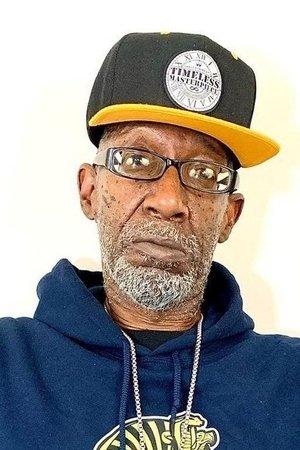Coke La Rock (b. 1955)
Birthplace:
The Bronx, New York City, New York, USA
Born:
April 24, 1955
Coke La Rock (aka Coco La Rock; born April 24, 1955) is an American rapper from New York City who is sometimes credited as being the first MC in the history of hip-hop. In 2010, he was inducted into the High Times Counterculture Hall of Fame[6] at the annual ceremonies at the Cannabis Cup in Amsterdam. La Rock was born in The Bronx, New York City on April 24, 1955, with family roots going back to North Carolina. Coke La Rock was a friend and musical partner of DJ Kool Herc, who himself is generally considered to have laid down the foundation for hip-hop music starting in 1973. La Rock was an original member of Herc's MC crew, the Herculoids. According to Herc, Coke La Rock's MC name had various iterations, beginning as "A-1 Coke," and then moving on to "Nasty Coke" before it was finalized as "Coke La Rock". Coke La Rock joined Kool Herc for his first party, in 1973, to celebrate Herc's sister Cindy's birthday. It wasn't until about the fifth or sixth party that he took the name Coke La Rock. The name came to him in a dream. Before that time, he had no name and did his rapping out of sight from the audience, so no one knew who was doing the rapping. His original raps were usually shout-outs to friends, but gradually the poetry emerged.[9] He originated such phrases as "You rock and you don't stop," and "Hotel, motel, you don't tell, we won't tell"[citation needed] (which was immortalized on the first Sugarhill Gang single "Rapper's Delight", although La Rock received no credit). Coke La Rock's raps were always purely improvisational, unlike those of later 70s-era rap groups, —such as the Furious Five and Cold Crush Brothers, who wrote down and rehearsed their rhymes and created elaborate routines. According to La Rock, while rapping "at first I would just call out [my friends'] names. Then I pretended dudes had double-parked cars; that was to impress the girls. Truthfully, I wasn’t there to rap, I was just playing around." Nonetheless, La Rock's raps would, as with much else at Kool Herc's parties in the mid-1970s, serve as a basic model for other hip-hop artists that would come onto the Bronx music scene by the end of the decade. La Rock himself has argued, in a reference to two pioneering New York City narcotics dealers, that "me and Herc were to hip-hop what Nicky Barnes and Frank Lucas were to drugs."





